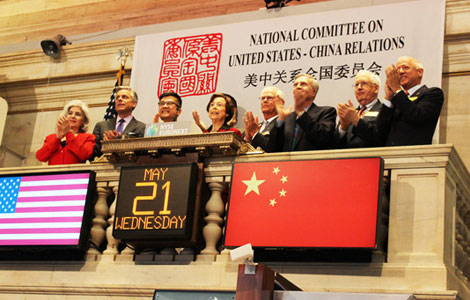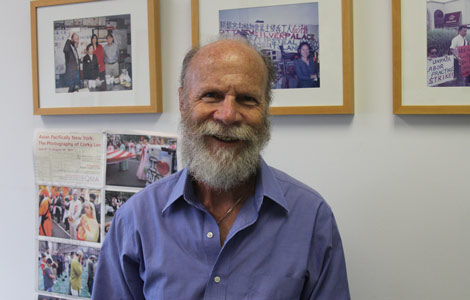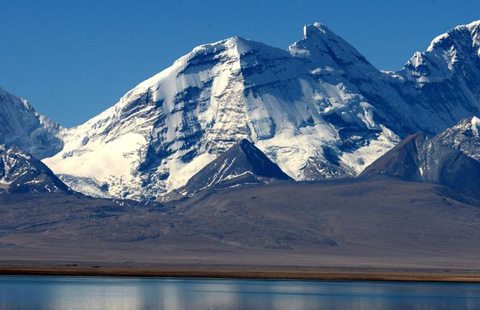Forum reaches beyond the individual
Updated: 2014-05-27 07:13
By Xinhua in Jinan (China Daily USA)
|
||||||||
"When friends come from afar, isn't it a delight?" said Confucius some 2,500 years ago. If the great thinker were still alive today, he would have been delighted to see that people from across the world have gathered in his hometown, discussing the value of Confucianism while exploring the path toward a harmonious world.
The Third Nishan Forum on World Civilizations was held in Ji-nan in Shandong province over three days last week. The conference, with a theme of "common human ethics amid different beliefs," attracted some 130 experts and academics on philosophy, theology, religious and cultural studies from different cultural backgrounds.
Participants agreed that the wisdom of traditional Chinese culture, especially the teachings of Confucius, can greatly contribute to problem-solving in modern times.
Xu Jialu, president of the organizing committee, says the root cause of the crisis shared by human beings nowadays is the distortion of moral values and overlooking of the importance of ethics.
It is of primary importance to establish a new common set of ethics for mankind which is based on such values as equality, respect, friendliness and common prosperity, he says.
Xu, the retired vice-chairman of the Standing Committee of the National People's Congress and a renowned Confucian scholar, says Confucian cosmic views of unity with nature, social views of harmony in diversity, and values of taking benevolence as one's own responsibility conform to the laws of nature and development of humankind.
Fred Dallmayr, a US professor from the University of Notre Dame and co-chair of the World Public Forum, says that since the Renaissance, there has been a tendency in the West to emphasize individualism.
Meanwhile, in Confucian teaching, there is no isolated being, and people live in all kinds of relationships. This sense of interaction can foster the merits of tolerance, generosity and respect, which can help people overcome their hostility toward others, Dallmayr suggests.
The view is echoed by Roger T. Ames, a professor at the University of Hawaii who has translated ancient Chinese classics including The Analects and The Art of War into English.
"All the problems we have today including climate change, pandemics, and population explosion are problems without boundaries which cannot be solved singlehandedly," he says, urging different countries to address the issues together.
Jean-Christophe Bas, former senior adviser to the UN's Alliance of Civilizations, says what he values most about Confucianism is the sense of moderation.
In his view, one of the greatest challenges in the world today is radicalization and many people see the world in black and white, while Confucian teaching on moderation can help people focus more on reaching agreements while acknowledging differences.
The "clash of civilizations" proposed by political scientist Samuel Huntington 19 years ago is actually a clash of ignorance, Bas says.
The Nishan Forum has given such a chance to young people by hosting a cultural conference for doctoral students from different countries.
Bai Lin, a Jewish student pursuing a PhD in religious studies at Shandong University in Jinan, says, "Although I am a Judaist, I read the Bible and Confucius' Analects to absorb wisdom and strength when I am frustrated."
Named after Nishan Mountain where Confucius is believed to have been born, the Nishan Forum came into being in September 2010 after Xu Jialu spent nearly three years working to establish it as China's first high-level spiritual dialogue.
The first and second forums, focusing on building harmony amid diversity, were held in 2010 and 2012 in Shandong province. Organizers have also strived to strengthen the forum's overseas presence, hosting the Paris Nishan Forum at the UNESCO headquarters in April 2012 and the New York Nishan Forum at the UN headquarters in November that year.
(China Daily USA 05/27/2014 page9)

 'Face-Bikini' swimwear trend sweeps East China
'Face-Bikini' swimwear trend sweeps East China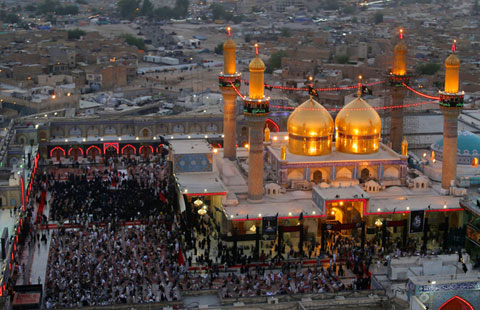
 Iraqi pilgrims gather to honor Muslim saint
Iraqi pilgrims gather to honor Muslim saint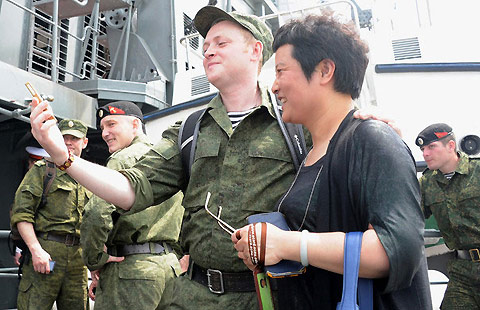
 Shanghai crowds flock to China, Russia battleships
Shanghai crowds flock to China, Russia battleships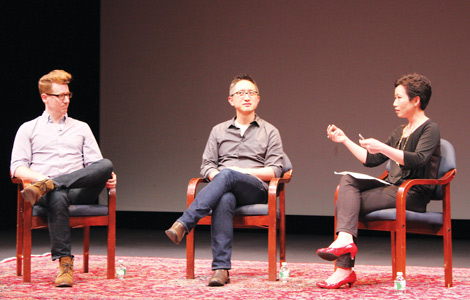
 Documenting reaching fame the hard way
Documenting reaching fame the hard way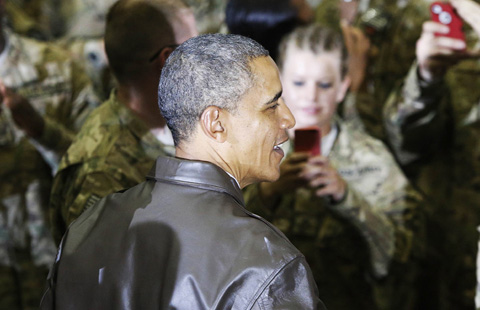
 US president pays surprise visit to Afghanistan
US president pays surprise visit to Afghanistan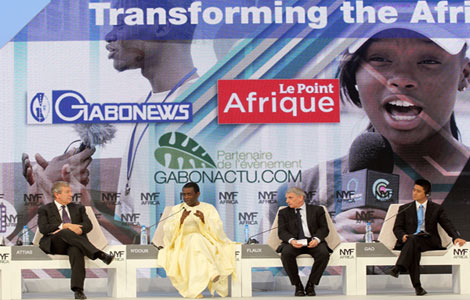
 Forum discusses strategies to realize Africa's promise
Forum discusses strategies to realize Africa's promise
 South America is prime market for Chinese automakers
South America is prime market for Chinese automakers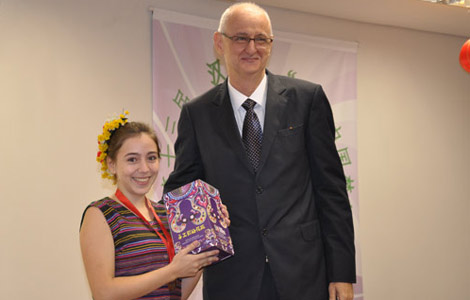
 Brazil names winners for 'Bridge' finals
Brazil names winners for 'Bridge' finals
Most Viewed
Editor's Picks
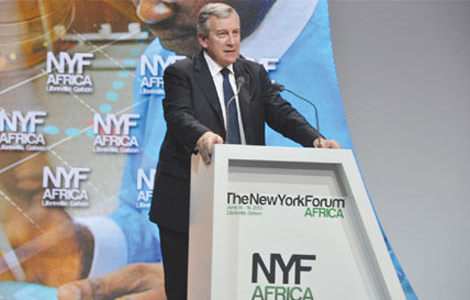
|

|

|

|

|

|
Today's Top News
US urged to explain cyberspace spying
Yao Ming mulls Clippers bid
Beijing subways to get 4G coverage
Xinjiang's stability a top priority
More efforts against arms smuggling
Anti-terror campaign launched
China lifts shellfish ban
Children from China enroll in US summer academic camps
US Weekly

|

|
